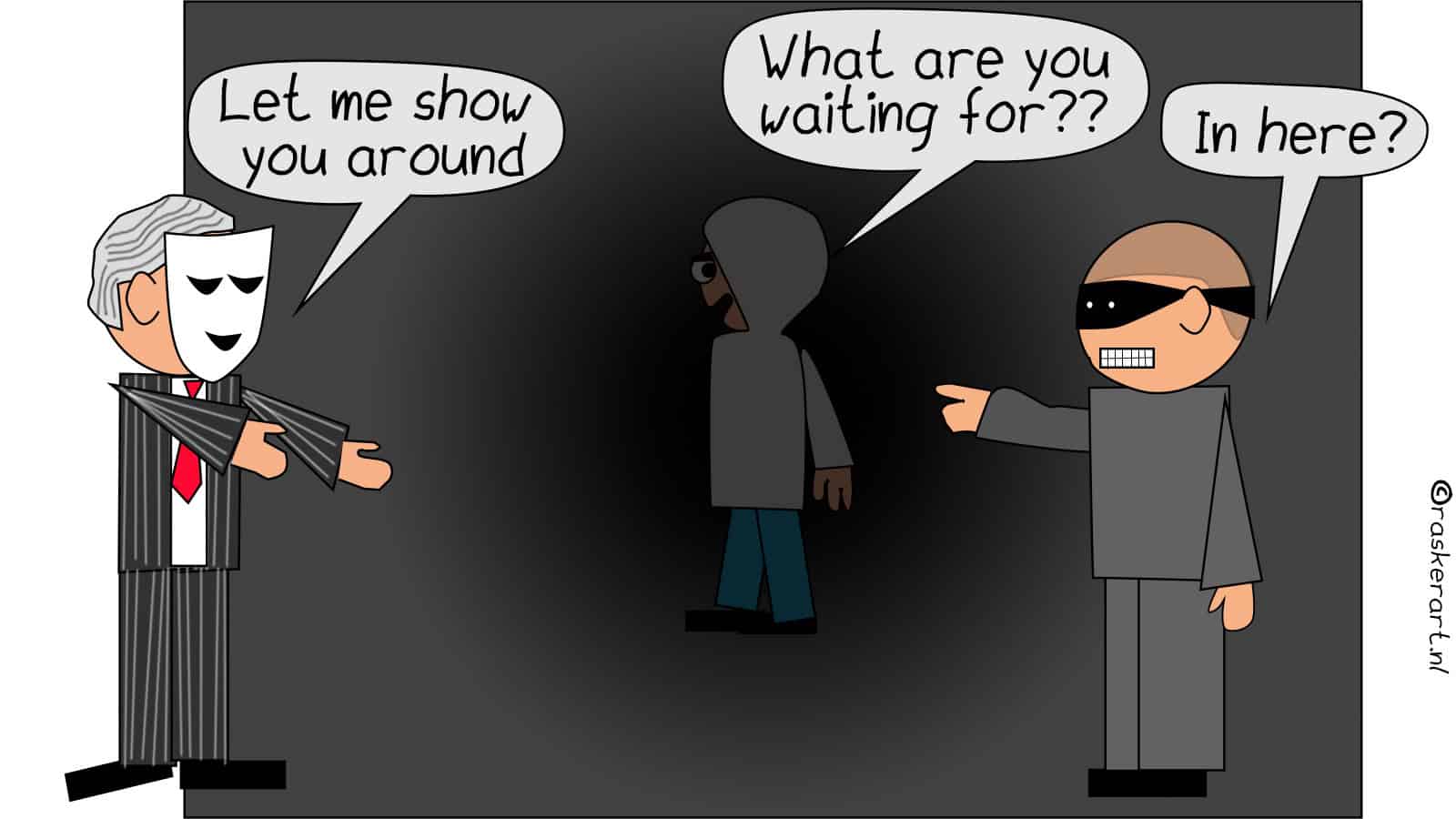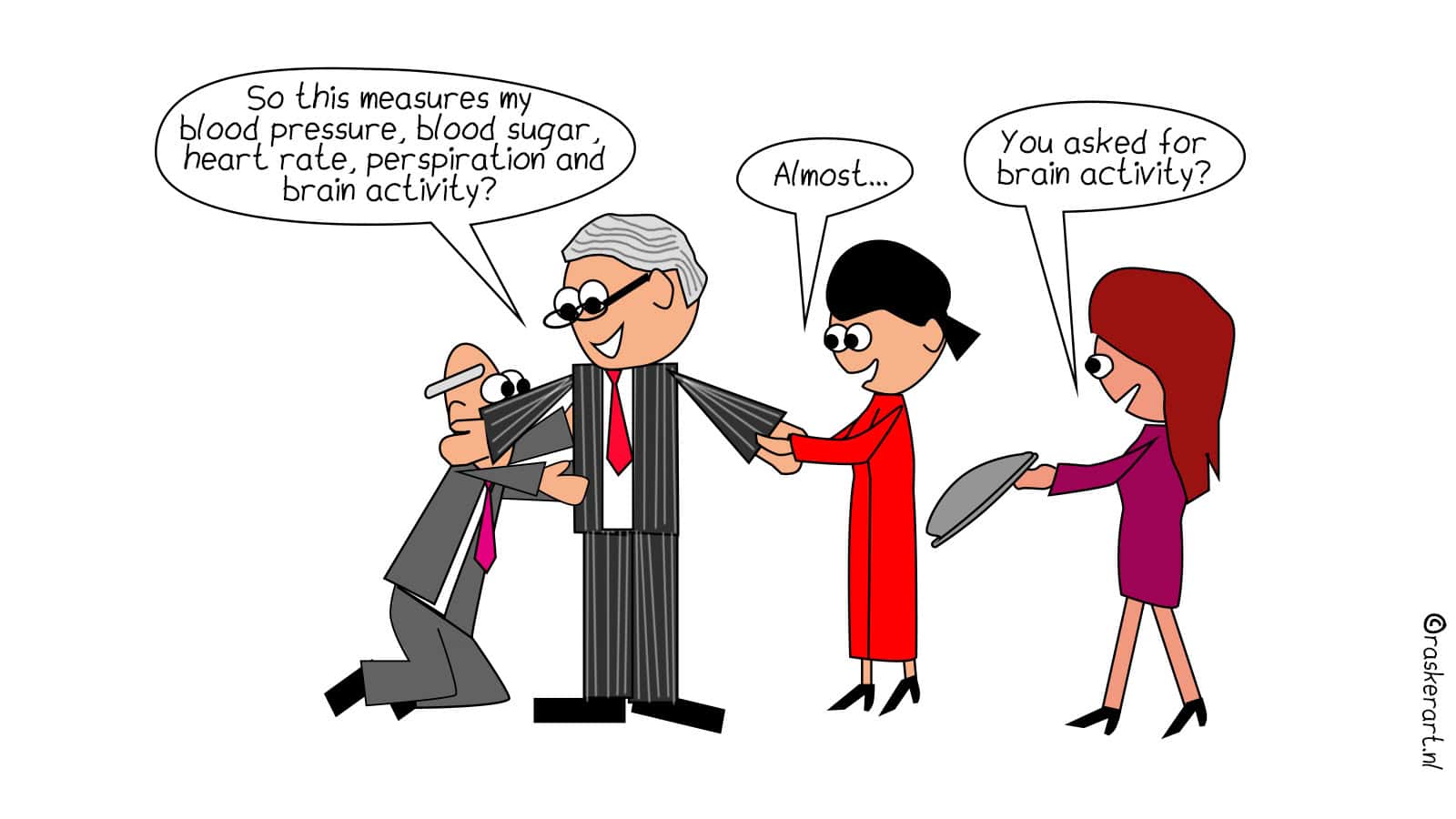
In our Sunday newsletter, we, as editors, look back on the past seven days. We do this on the initiative of our cartoonist Albert Jan Rasker. He chooses a subject, makes a drawing, and we take it from there.
SpaceBorn United, a start-up that originates at TU Eindhoven, aims to be the first to conceive a child in space by 2028. With this research and technology, the SpaceBorn team wants to contribute to a larger mission to enable human life on other planets.
Upfront: yes, this is a serious undertaking (although we know it was April 1 yesterday). But at the same time, I have to note that it was one of the most intriguing stories of recent months. And one that not only creator Egbert Edelbroek has thought deeply about but also an idea raising understandable questions with our cartoonist. After all, organizations like ESA and NASA have shown their (ethical) limits around initiatives like this, but at the same time, there are big financiers ready to claim “the first space baby.”
Plan B
Quite a few experts are now involved in SpaceBorn’s plans – think of astrobiologists, fertility experts, ethicists, lawyers, satellite and space mission developers, and spacecraft manufacturers. The plan is to enable all stages of pregnancy in space, with the ultimate goal of giving birth to a baby in space.
Edelbroek’s motivation lies in the many threats currently affecting Earth. A global pandemic, nuclear disasters, climate change. Of course, we should be 99 percent focused on planet Earth. But, Edelbroek believes, a plan B is necessary. Moreover, we can learn a lot in preparing this plan, which will also improve life on Earth, he argues.
Better judge for yourself: Read the full story about the Space Babies here
Space Data
Albert Jan also saw a connection to another article we published this week. That addressed the data we can already get from space today: a treasure chest for companies on Earth. From energy companies to bulb growers, companies increasingly use space data to arrive at solutions to social issues.
Read here how that – thanks partly to the NL Space Campus – is happening.
The European Energy Index

It was an idea of our editor-in-chief Arjan Paans, who died early this year. We puzzled over the implementation for quite some time, but thanks to the efforts of our colleagues Jeroen van de Nieuwenhof (design and coding) and Frans van Beveren (production), here it is: the European Energy Index (europeanenergyindex.com). With this tool, you can check at any moment of the day how (almost) all countries of Europe produce their energy. Fossil or renewable, gray or green? What happens when the wind blows in the North Sea, and what when the sun rises in Greece? How dependent is France on nuclear power, and what is the importance of hydro in Sweden? Thanks to our index, you know the color of your power. And you can – as a company, as a government, but also as a private person – act accordingly. The energy transition is a complex process that requires effort from everyone. The European Energy Index can help.
Read more about our European Energy Index here.
There is more…
In addition – as always – we had our sights firmly set on all those people and organizations working on the enormous challenges of our time. Here is our “sneak preview of the future” from this week:
Demcon and Carbyon tackle climate change with machines that suck CO2 out of the air
Innovative magic Solar Team Twente: mechanical passion
Legal scholars call for prosecution of oil companies for climate murder
AI sensor makes your trash can smart and helps you sort trash
And finally, here’s what our AI editor did this week: follow Laio.
Have a great, innovative week!








